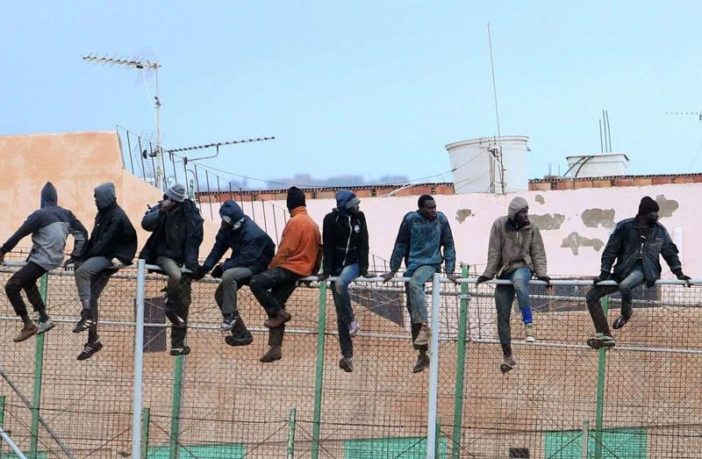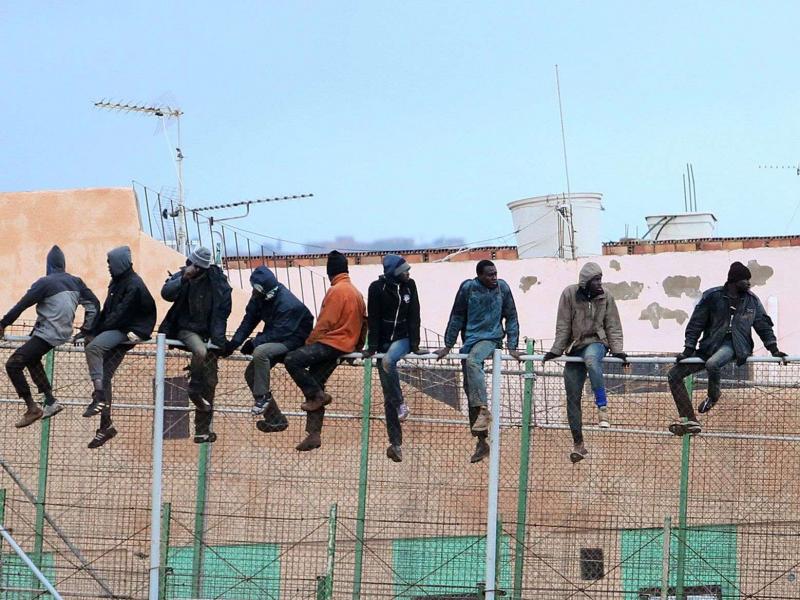The Arab Weekly
Written By Saad Guerraoui
The Spanish government approved aid of $35.7 million to Rabat in addition to $28.8 million previously granted to Morocco.
All was quiet at the border between the Spanish enclave of Ceuta and Morocco amid heavy security along the long, barbed-wire fence preventing African migrants from crossing into the European Union’s only land border, besides Melilla, with Africa.
“It has been very quiet for several months here. We haven’t seen African migrants for quite some time,” said Mohammed from the village of Oued Daouiyat, which borders Ceuta.
Moroccan security forces are deployed across the 8km border fence as hallmarks of African migrants are visible in bushes.
Approximately 250 migrants took security forces on both sides by surprise August 30, storming Ceuta’s border fence after a year of lull. A government spokesman in Ceuta said about 155 of the migrants made it into Ceuta.
A previous attempt, in August 2018, by sub-Saharan migrants charging Ceuta’s heavily fortified border ended with the migrants sent back to Morocco, sparking condemnation from human rights groups. Approximately 50 migrants forced their way into Melilla last May during a mass attempt.
Morocco and Spain have reactivated bilateral security agreements, allowing the quick return of migrants to Morocco after illegal crossings into Ceuta and Melilla.
Spain has become the number one target for African migrants after Italy sealed its borders, prompting Madrid to push for more financial aid to help Morocco tackle illegal immigration.
The Spanish government approved aid of $35.7 million to Rabat in addition to $28.8 million previously granted to Morocco as part of the cooperation between the two countries to stop illegal migrants.
Spanish government spokeswoman Isabel Celaa said the funds were part of a package of $155 million approved by the European Union last year for Rabat’s efforts to curb illegal immigration.
Every year, thousands of African migrants, including Moroccans, try to cross into Spanish enclaves of Ceuta and Melilla.
Some of them climb the 6-metre tall barbed-wire fences separating the Spanish enclaves from the Moroccan territory to make it to Europe. Others choose a more perilous journey by sea, braving the strong currents of the connecting Atlantic Ocean with the Mediterranean.
A total of 859 migrants died in the Mediterranean as of August 22 and 14,680 had arrived in Spain since the beginning of 2019, the International Organisation for Migration (IOM) said.
In 2018, approximately 7,000 illegal migrants crossed the border from Morocco into the two Spanish enclaves, the IOM said.
The number of illegal migrants crossing into Spain doubled last year with 65,000 arrivals compared to 2017, straining Madrid’s efforts to counter illegal migration flows.
Spain plans to remove the barbed-wire fencing around Ceuta and Melilla before the end of the year, opting for other technologies to prevent migrants’ illegal passage from Morocco.
This year, Spain has become the second main entry point for illegal migrants into the European continent after Greece.
Morocco has become a key player in curbing illegal immigration to Europe, with border reinforcements making it virtually impossible to reach Spain.
“Morocco is helping us,” said Spanish Foreign Minister Josep Borrell at a news conference in Rabat last June.
Spain urged the European Union to increase financial aid to Morocco, which is playing a major role in helping curb illegal migration.
“Meanwhile, Spain and the EU are equipping and financing Moroccan border guards to outsource control of barbed wire from Ceuta and Melilla. Never has North/South “cooperation” on migrant hunting been so successful,” German journalist Olivier Cyran posted on Twitter.
The Spanish government’s goal of reducing illegal immigration by half in 2019 is getting closer amid a 39% drop, El Pais reported.
Rabat has stopped 42,000 people, 80% of whom would-be border crossers, from illegally crossing to Spain, Moroccan authorities said.
The Royal Morocco Navy has become involved in search-and-rescue maritime operations, forcing human smugglers to depart from as far as the western city of Casablanca.
Written By
Saad Guerraoui
Saad Guerraoui is a regular contributor to The Arab Weekly on Maghreb issues.








